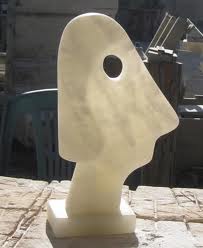
Wynton Marsalis plays the immortal jazz of Jelly Roll Morton and Louis Armstrong tonight (Dec 29) 7:30 pm & 10:00 pm ET on Facebook and Livestream  live from Dizzy’s Club Coca-Cola in Jazz at Lincoln Center, NYC. This is repertoire that the newly named CBS cultural correspondent relives better than anyone else, and it’s great to hear material written for the Hot Peppers, Hot Fives  and Sevens in 2011, 80 to 90 years since it was the very newest music in the world.
I highly recommend checking this out — free, after all — but I must report there’s been honest debate about whether WM’s new status as a cultural commentator is a good or a bad thing for jazz — never mind “jazz journalism” — and whether my facebook post “endorsement” of Wynton as having a “raging curiosity about . . Â the entire range of human expression” Â is ironic or not. Here it is in it’s entirety: you decide —
“Wynton Marsalis’ raging curiosity about music of every sort, and his open mind about art forms presenting the entire range of human expression, are sure to stand him in good stead as he assumes the position of arts pundit for CBS News. Among jazzers, Dr. Billy Taylor has ever had such responsibilities before — I can think of no film director, choreographer, fiction writer or visual artist who has ever been hired for this job (but if you know of someone, please fill me in).”
My longtime colleague and long ago frontline mate Chicago-based critic Neil Tesser called me out about this —
 “Raging curiosity about music of every sort?” I think you’re giving him a bit of a pass here, pal. This is the same Wynton who shaped Ken Burns’s “Jazz” into a reactionary, past-besotted series that ignored the quarter-century of music leading up to its production. And the same Wynton Marsalis who berated Miles while lashing out at anything that didn’t “swing” New Orleans-style. I happen to greatly respect Wynton for his talent, his accomplishments, his ability to connect with audiences, and his telegenic presence, and I think these may make him a fine successor to Dr. Taylor in his new role. But let’s not ascribe to him a quality that has seemed in short supply during much of his tenure as America’s jazz spokesperson.
And I wrote back, “Irony is SO hard to express in print.” One correspondent kudo’d my “bone dry” assessment, but another said he thought I’d endorsed the hiring 100%. Bartender, another shot of ambiguity, please — on the rocks!
Now about Marsalis’s status update:
“Can’t be good,” wrote Tom Blatt, bassist and sculptor  (whose stated political motto is Quincy Adams Wagstaff’s immortal “Whatever it is, I’m against it.” )
To which responded Larry Appelbaum, a not-only-virtual friend and colleague (the man who found the Monk/Coltrane Carnegie Hall recordings in the Library of Congress!),
sure it can. it might not be what you like or what you might prefer, but that doesn’t mean it can’t be good. and i’ll bet it does some good, too. . .
whining about Wynton is a tedious cliche. trash him if you want, but i think it’s great that CBS has created such a position not relegated to a magazine entertainment show, but as part of their news division.
Mary Jane Leach, a composer I met in the ’80s around Phill Niblock’s Experimental Intermedia loft concerts, wrote,
I’ll agree with raging, but not the curiosity part. He’s probably the most actively disliked musician I know of.
James Hale, jazz journalist from Ottawa, a pal and former vice president of the JJA, wrote:
 I wonder if he’ll cover female artists since he clearly doesn’t think much of them as bandmates.
At least the Banff School and the Kennedy Center made forward-looking choices [pianists Vijay Iyer and Jason Moran, respectively]. CBS? Conservative and predictable.
Many more lively, informed, nuanced, strong! comments — from Pamela Firefly, Frank Feldman, Eugene Holly, Steve Dollar, Jon Arnold, James Keepnews, Gerald Cox, Dita Sullivan, Chuck Byers, Joyce Byers Hines, Chuck Zeuren, among others. Several suggested we wait and see, expect the best or assume Wynton will be fine (anyway, better than no one).
That’s ok by me and what we do anyway. But imagine Dylan hired by CBS News cultural commentator, or Toni Morrison, Patti Smith, Ya Yo Ma, David Simon (my choice), Prince (would be interesting), Sean Combs . . . Speculating on such “newscasts” is half some fun.
I second a hope expressed by Michael Rosenthal, an East Villager I met holed up in a summer camp writing short stories (we both were)Â a couple decades back
Maybe Wynton will experience an epiphany on the road to Black Rock, and rise to speak in harmolodics.
At first I thought “black rock”, like Vernon Reid and Greg Tate espouse and,
uh, that won’t happen. But no! Black Rock as in  “30 Rock” for CBS.
Wynton has spoken in harmolodics – I’ve heard it live – with representatives of Ornette and sometimes the visionary himself in the house. One of Wynton’s greatest strengths is his command of a breadth of the genuine musical elements, details, patterns, necessities — the how to?s and why?s — of a broad swath of American and Western European music, up to and including Ornette (who his father Ellis had sought out when both were young). In the early ’80s when Wynton arose, he sounded like second great quintet/pre-electric mid ’60s Miles, but he has since turned into a devotee of Armstrong and Ellington (and Ellington trumpeters like Bubber Miley, Rex Stewart), their scores and improvisations, image projections and  career developments, historical contexts and personal milieus.
I’ve heard Wynton play entire evening-long programs of rarely heard repertoire by JR Morton and John Coltrane, both convincingly, with style and passion appropriate to their distinctly different purposes, in the course of one week. He can recreate Ellington’s compositions to a fare-the-well and has some very strong instincts for interpreting the works of Thelonious Monk. A half dozen years ago I heard him play one beautiful, evidently spontaneous concert coda at Alice Tully Hall — a single unaccompanied chorus of “Embraceable You” frought with imaginative and immediate flights of melodic romance. I’ve heard him rip it up at Newport, I’ve laughed with his score to Tune In Tomorrow. He has hands-on made JALC the foremost branded, authoritative and far-reaching enterprise jazz has had from its beginning to this day.
I don’t listen to Wynton’s music for my own pleasure, but I know others do. To my taste, what he does can seem fussy, uptight, precious. I wish more people knew about an listened to Don Cherry, Red Allen, Clifford Brown, Lester Bowie, Freddie Hubbard, besides living cats — Â Ron Miles, Cuong Vu, Taylor Ho Bynum, Ingrid Jensen, Brian Lynch, Kermit Ruffins, Ron Horton come to mind. But over almost 30 years of observation, I’ve learned: Do not underestimate Wynton Marsalis.
Still, Wynton has prejudices and blind spots, especially since he is so personally identified with certain interests — financial, aesthetic and otherwise — of the arts and entertainments. He is party to many of the specific issues of arts and culture developments upon which a cultural commentator specializing in “jazz” in the 21st century might be expected to expound. Expound, Wynton will. Whether his information and analysis will be more pertinent than that of a lesser-engaged, potentially more aggressively investigative observer? I suppose it depends upon the hypothetical observer. If it were me. . .
I know it’s not, it won’t be. Face it: Wynton’s got accomplishments, position, personality, talent, dedicated energy beyond most of the rest of us. We live in his world. Here’s the entirety of my CityArts column late last October on Wynton turning 50. It was not put on the web by City Arts itself, otherwise I would have posted it earlier.
The King at 50
Wynton Marsalis is indisputably the reigning King of Jazz. Trumpeter, composer, soloist and orchestra leader, artistic director of Jazz at Lincoln Center, NEA Jazz Master, visitor to the White House, international ambassador of American music, the King celebrated his 50th birthday on October 18.
The event was heralded by a hour long PBS broadcast (of a two-hour concert, all streamed live and archived for free viewing at PBS.org) at the Rose Theater in the fabulous JALC facilities he had designed to jazz specifications and built in the fifth floor of the Time Warner Center; it opened in 2004. As Movado, the watchmakers Marsalis endorses, noted in its half-page New York Times ad celebrating his half-century, he’s sold seven million records, won nine Grammys and the Pulitzer Prize. He’s been on tv, written books, lectured at Harvard. He looks fit, speaks with eloquence and charming modesty and can play up a storm. As Mel Brooks has noted, “It’s good to be King.”
And yet one wonders: How heavy sits the crown?
Marsalis was coronated more than 25 years, upon winning Grammys for both jazz and classical recordings, something no one did before, in 1984. His administration has a conservative aesthetic, as he’s cast himself in the lineage of Louis Armstrong and Duke Ellington, exemplary models from the past century. Yet he’s shouldered responsibilities no previous jazzer ever faced. Neither Pops nor Duke ever presided over a $42 million annual budget, as Marsalis does – in wise collaboration, evidently – at Jazz at Lincoln Center.
The King came up at a cultural turning point, when the opposing musical camps of disco and punk rock gave way to rap and pop-as-mostly-easy-listening-pap. Back then the frontlines of jazz were in commercial disarray, still-great veterans like Art Blakey (one of his mentors) and Miles Davis (who Marsalis took as the king to oust) in their last years. Record companies were eager to profit from reissues of classic records in a spanking new format, the CD. However, Columbia Records got behind the young prince, as did Lincoln Center. The rest is history.
Marsalis was originally and has remained dismissive of electric jazz, funk and much of the avant-garde, rallying his forces around the flag of swing, blues and ballads. A proud scion of New Orleans, he positioned himself as a race man for serious strivers at a time when more black Americans were becoming prominent in the bourgeoisie. His attitudes were attractive, as was his tailored style, especially as his virtuosity supported his claims.
Over the years, his attitudes have mellowed, but virtuosity has been a keystone of his career, matched by discipline and ambition. Recording prodigiously, touring non-stop with the Lincoln Center Jazz Orchestra, collaborating with everyone from Peter Martins to Eric Clapton, actively promoting the revival of New Orleans after Hurricane Katrina and mentoring a generation of youngsters who’ve risen through jazz ranks, the King has labored with only a brief break in 2006 to recover from laser surgery on his lip. Putting aside classical repertoire, he’s demonstrated instrumental mastery across the range of jazz, credibly addressing works by Jelly Roll Morton, John Coltrane, bebop, Western swing, Latin jazz and Ornette Coleman.
The King is a brilliant trumpeter, always impassioned and capable of stunning nuance. During his broadcast birthday performance he was omnipresent and omnipotent, emerging from his big band with plunger mute in hand for a horn solo employing an early-jazz vocabulary of growls and smooches. He presented sections from his major works “Blood on the Tracks,” “All Rise” and “Abyssinian 200,” stronger for being excerpted from lengthy scores; they can be ponderous when offered up whole. He generously featured loyal members of his Orchestra, as well as singer Gregory Porter, fiddler Mark O’Connor, tap dancer Jared Grimes, Damien Sneed’s Chorale Le Chateau and Ghanian drummer Yacoub Addy with his ensemble Odadda!, who provided an authentically African-derived “Ring Shout” and upbeat finale during which the entire cast second-lined into the wings.
Most tellingly, Marsalis dueted with pianist Marcus Roberts, his longtime confederate, jamming on “Delfeayo’s Dilemna” like jazz has no bounds – which is hasn’t. After working up a sweat, Marsalis pshawed it, commenting that they’d played like that when they were young but had decided jazz needs more melody. Wait: There was melody, engagement and excitement about the unknown, still, in what the two men did. It was nothing to be ashamed of, to fancy up or trim for some protocol of propriety. And it was hot, which his formal works aren’t.
That Wynton Marsalis has it in him to blow like that makes me ask, if the man needs a holiday. Does he want to be free? If so, then he should be! Do as you will, Wynton, play like the free man you are! You rule jazz, not a castle. And live long that way, King.
Obviously, Wynton has ignored me. He needs no vacation. He thrives on being busy, productive and responsible. He is at the helm of an expanding empire, as Jazz at Lincoln Center plans a Dizzy’s Club at the St. Regis hotel in Doha, Qatar
is not enough to compose and play, tour and teach, curate and consult, endorse and advance the art form — he will now be the first “cultural commentator” to be so-hired by a television network in the U.S. Who knows what his beat is, his mission, his point? Wynton will define it. The King at 50 is not at rest. That’s my last word on the subject this year.




